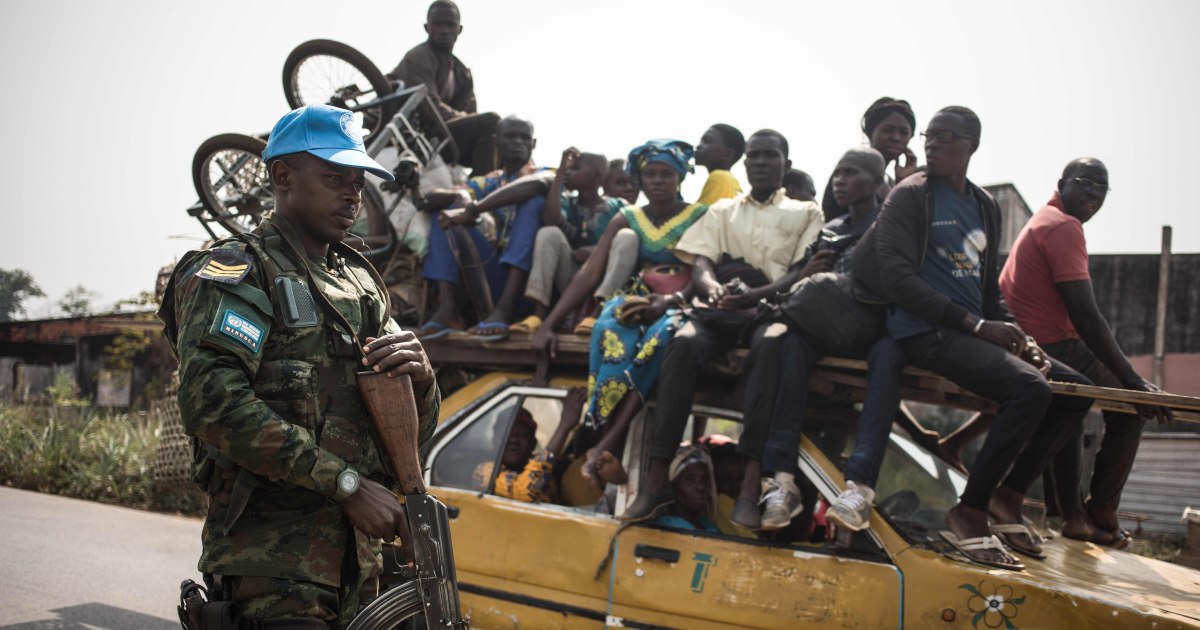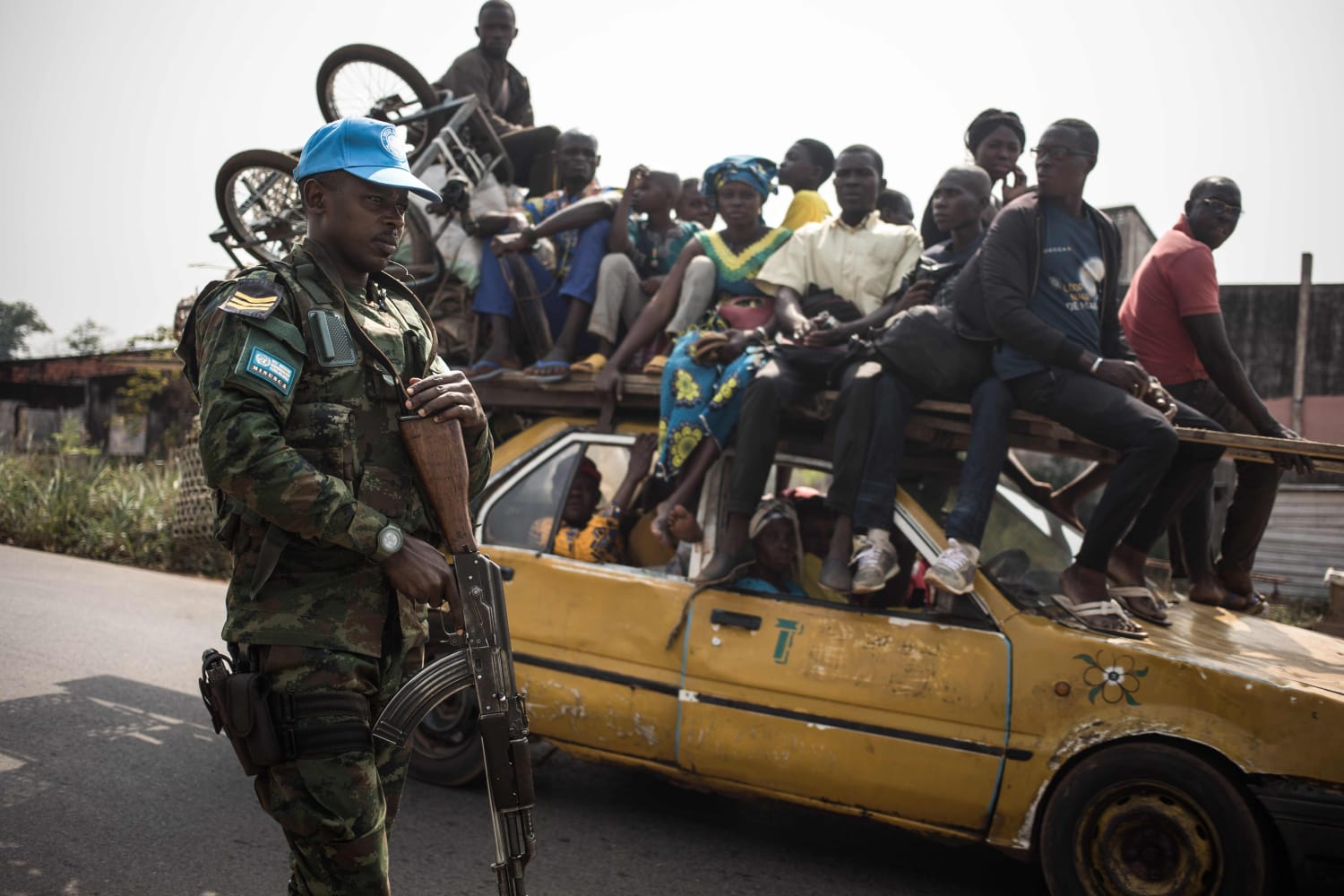
More than 200,000 people have fled fighting in the Central African Republic (CAR) since violence erupted over a December election result, the U.N. refugee agency (UNHCR) said, with nearly half crossing into the Democratic Republic of Congo.
The CAR army, backed by U.N., Russian and Rwandan troops, has been battling rebels seeking to overturn a Dec. 27 vote in which President Faustin-Archange Touadera was declared the winner.
“Refugees have told UNHCR that they fled in panic when they heard gun shots, leaving their belongings behind,” spokesman Boris Cheshirkov told journalists in Geneva on Friday.
The nation of nearly five million people — larger than mainland France, Belgium and Luxemburg combined —and rich in diamonds, timber and gold, has struggled to find stability since a 2013 rebellion ousted former president Francois Bozize.
The current fighting between a coalition of militias on the one side and the national army and its backers on the other, was sparked by a Constitutional Court decision to bar Bozize’s candidacy in the Dec. 27 presidential election.
Former prime minister Martin Ziguele, who came third in the Dec. 27 election, said on Friday there was fighting across the country every day, preventing movement between towns and pushing more people to flee.
“I cannot leave Bangui and go 90 km (60 miles) without a heavily-armed army escort. Imagine then the population. Add the curfew and the state of emergency, it is really an apocalyptic situation,” Ziguele told Reuters by phone.
In a statement on Friday, the International Conference on the Great Lakes Region, a regional body of 12 member states, called for a ceasefire and urged armed groups to “disengage from the encirclement of Bangui” and allow people and goods to move freely.
Download the NBC News app for breaking news and politics
The body will also ask the United Nations Security Council to lift an arms embargo imposed on CAR that has restricted the flow of weapons to the army since 2013.
About 92,000 refugees have reached DRC and more than 13,000 have crossed into Cameroon, Chad and the Republic of Congo — the rest are displaced inside the Central African Republic, the UNHCR said.
Ongoing attacks have hampered humanitarian access, the main road used to bring supplies has been forced to shut inside the country, and many are now facing “dire conditions,” UNHCR’s Cheshirkov said.
Some of the displaced are so desperate they have agreed to sex in return for food, he added. While malaria, respiratory tract infections, and diarrhea have become common.
Source: | This article originally belongs to Nbcnews.com









